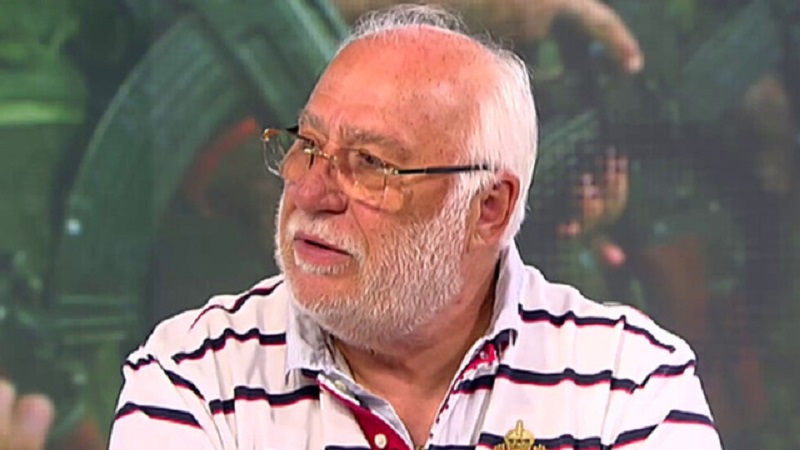Gebrev targeted again, tension between Sofia and Moscow
A large fire destroyed a warehouse at the factory of the arms magnate who first suffered a poisoning attempt with Novičok in 2015. Kremlin pressure on the country's arms sector, which also supplies Kiev.
Sofia (AsiaNews) - Bulgaria is shaken by a new incident involving businessman Emeljan Gebrev, who had already been subjected to poisoning attempts by the Russian services in recent days.
The Kremlin's influence and sabotage in its brothercountry - now arrayed against the war - have become an even more topical issue since the new government in Sofia came to power, and on the eve of the visit of Ukrainian President Volodymyr Zelenskyj.
At 4 a.m. on 25 June, on the outskirts of the Bulgarian town of Karnobat, renowned for its production of fine wines, a large fire broke out, destroying the warehouse of the Emko arms company, owned by Gebrev.
In 2015, he was the first victim of Novičok, the new poison developed by Russian counter-intelligence Crane, three years before the successful assassination of Skripal and his daughter in England, and the attempted poisoning of Naval'nyj in summer 2020.
In addition to avoiding new lethal doses, after recovering Gebrev had already had to put out another fire just a year ago, on 31 July 2022, which had also caused bombs to explode in manufacture, without being able to find the culprits.
After the 2015 attack, the then Bulgarian defence minister Boyko Noev had stated on television that 'the Kremlin wants to destroy the entire arms industry in Bulgaria', one of the most active arms exporting countries.
Moscow wanted to impose an agreement on Sofia, according to which the Bulgarians could not export arms and ammunition without Russian permission, while Gebrev's company did a lot of business with Ukraine.
The same businessman said he was '100 per cent certain' that the sabotage was the work of the Russian services, and today he goes even further, claiming to be 'clear about the scheme and mechanisms, and also about the group of people who targeted the arms depots'.
It would also include members of the power structures that have ruled Bulgaria for the past 10-12 years, '50-60 people who serve interests very different from those of our country'.
The Bulgarian Prosecutor General's Office basically agrees with this thesis, but 'strangely enough, it does not take any initiative', Gebrev notes.
The current prime minister Nikolaj Denkov sees 'malign forces in action' in these incidents, and has ordered increased surveillance of armament factories, while acknowledging the limited possibilities of executive power in the face of 'explosions and attacks that have been occurring regularly for the past 10 years'.
The latest incident, it is inferred from the premier's allusions, is connected with Sofia's declaration of its intention to join the European initiative to supply Ukraine with 1 million artillery munitions.
The leader of the pro-European 'Let's continue the changes' party, Kiril Petkov, who joins the governing coalition, gave an interview to Politico to comment on the anniversary of the expulsion of 70 Russian diplomats from Sofia in June last year.
The decision was aimed precisely at countering sabotage, and Petkov praised the courage of Denkov, who ran the risk of breaking diplomatic relations with Moscow.
According to the politician, 'Bulgaria must free itself from the influence of Moscow's agents, as a priority in the fight against corruption', which is spread and organised by the secret services that 'since the fall of communism have played an exclusive role in the formation of powerful mafia groups', which are also involved in drug and arms trafficking.
Denkov also confirmed these concerns in several speeches, promising that 'we will not allow this state of affairs to continue', starting with a reform of the services that would clean up the many 'Kremlin flankers'.
Russian propaganda is very active in Bulgaria, using all means, including cyber, to denigrate Sofia's support for Ukraine, and relying on the figure of the pro-Russian president, General Rumen Radev, in office since 2017, and several other politicians siding with Moscow.
As several commentators state, Bulgarian Russophilia is still widespread as a kind of 'Stockholm syndrome', and the country that in ancient times was a 'master of letters' for Russians, today struggles to escape its dominating grip.







.png)










